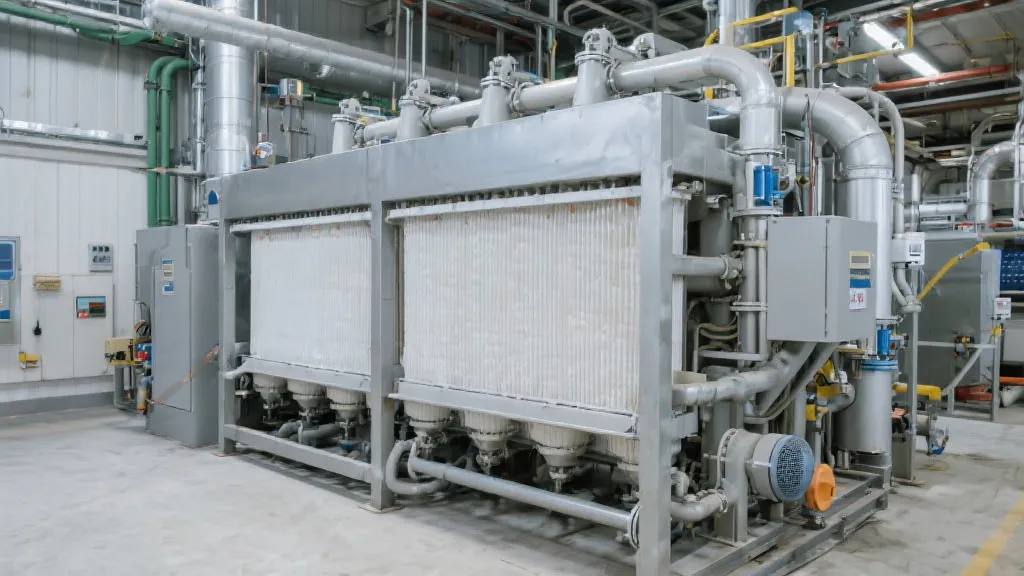This article provides an in-depth look into Stauff Filters, renowned in the industrial sector for their reliability and efficiency in filtration applications. As an essential component in various machinery, Stauff Filters play a pivotal role in ensuring operational efficiency and equipment longevity. By maintaining fluid cleanliness, these filters contribute significantly to reducing wear and tear and minimizing machine downtime.

Stauff Filters are a cornerstone in the industrial sector, renowned for their unparalleled efficiency in filtration applications. Designed to uphold stringent industry standards, these filters are pivotal in preserving the longevity and efficiency of mechanical operations. Their robust construction and advanced design allow them to tackle the demanding conditions found in various industrial environments. But what sets a Stauff Filter apart from its competitors, and why is it a preferred choice across various industries? The answer lies in a combination of cutting-edge technology, quality craftsmanship, and a commitment to customer needs, revealing a broader narrative about the importance of effective filtration in industrial operations.
Stauff Filters are lauded for several key advantages that bring significant benefits to industries worldwide:
The amalgamation of these benefits underscores why Stauff Filters are a trusted choice in various industrial applications, ranging from construction to manufacturing and beyond.
Stauff Filters are designed with a variety of specifications to cater to specific industrial needs. Their comprehensive product line includes an assortment of filter types, each tailored for unique applications:
Each filter type is customizable based on specific industrial requirements, ensuring tailored filtration solutions for diverse operational needs. Additionally, Stauff Filters offer various filter elements and materials, including synthetic fibers and stainless steel, which can enhance filtration performance in specific applications.
| Condition | Requirement |
|---|---|
| Installation | Ensure correct installation by professional technicians to prevent leaks or filter damage. It is advisable to follow the installation guidelines provided by the manufacturer meticulously to avoid compromising the filter's integrity. |
| Maintenance | Regular maintenance checks are vital. Replace filters based on a defined cycle according to manufacturer recommendations. Employing a schedule for routine maintenance can significantly enhance filter life and system performance. |
| Compatibility | Ensure filter compatibility with existing equipment to improve filtration efficiency and system reliability. Choosing filters that are not only suitable for the application but also compatible with existing fluids and system conditions is essential. |
| Monitoring | Utilize monitoring systems to track filter performance and fluid cleanliness. Advanced systems can signal when filters are nearing saturation or when fluid quality is diminishing, prompting timely interventions. |
Industries heavily reliant on hydraulic and lubrication systems have realized significant improvements in efficiency with the adoption of Stauff Filters. Here are a few detailed examples outlining the effectiveness and benefits of these filters in different sectors:
Automotive Industry: The automotive sector benefits extensively from the high-pressure filtration capabilities of Stauff Filters, ensuring machinery operation with minimal breakdowns. In one case study, a major automotive manufacturer implemented Stauff Filters in their hydraulic press systems. Within just a few months, they observed a 25% reduction in unscheduled maintenance due to improved fluid purity. This not only enhanced productivity but also provided significant cost savings on repairs and operational downtime.
Aerospace Sector: In the aerospace industry, reliability is paramount. A leading aircraft manufacturing company adopted Stauff Filters for their hydraulic systems used in landing gear and flight control mechanisms. The sophisticated filtration technology of Stauff Filters has significantly reduced the incidence of component failures caused by hydraulic fluid contamination, thereby enhancing avionics efficiency and safety. By employing regular filtration maintenance practices, the company extended the life of critical hydraulic components by over 30%, reflecting both on their operational efficiency and safety protocols.
Construction Industry: Construction machinery, such as excavators and bulldozers, often operates in highly contaminated environments. A construction company replaced their existing filtration systems with Stauff Filters in their fleet, seeking greater reliability. Post-implementation studies revealed improved machine performances, showcasing a significant drop in filter replacement frequency and an extended machinery lifespan. The operational costs of fluid replacements diminished as the effectiveness of contaminant removal improved, as Stauff Filters helped maintain optimal conditions in hydraulic circuits.
As industries increasingly pivot toward sustainability, Stauff Filters play a meaningful role in enhancing environmental responsibility. The design and functionality of these filters contribute to eco-friendly operations by:
What are the typical applications for Stauff Filters?
Stauff Filters are employed in various sectors, including automotive, aerospace, construction, and marine industries, wherever hydraulic and lubrication systems are integral. Their application extends to any operations that require stringent cleanliness standards in their hydraulic fluids, making them versatile and widely applicable.
How often should Stauff Filters be replaced?
The replacement frequency depends on usage hours and oil cleanliness levels. Adherence to the manufacturer's maintenance schedule optimizes filter performance. Factors like the operational environment, type of fluid, and the specific application can also influence replacement intervals, necessitating periodic evaluations to determine the ideal timeframes for maintenance.
Are Stauff Filters environmentally friendly?
Yes, Stauff Filters are designed with a focus on sustainability. They help in reducing waste by maintaining the longevity and efficiency of machinery, leading to a lower environmental impact over time. The emphasis on robust, durable materials further enhances their overall sustainability, as they are built to withstand the operational stresses without frequent replacement.
By incorporating Stauff Filters within industrial systems, businesses not only bolster equipment performance but also contribute positively towards eco-conscious operational practices. As the industrial landscape evolves, the role of efficient filtration systems like those offered by Stauff will undoubtedly remain integral to operational success and sustainability. The push toward cleaner, more effective industrial solutions aligns well with global trends aimed at reducing ecological footprints while maximizing productivity. Overall, Stauff Filters represent an essential component in the evolution of industrial filtration technology, marrying efficiency with responsibility for the environment.